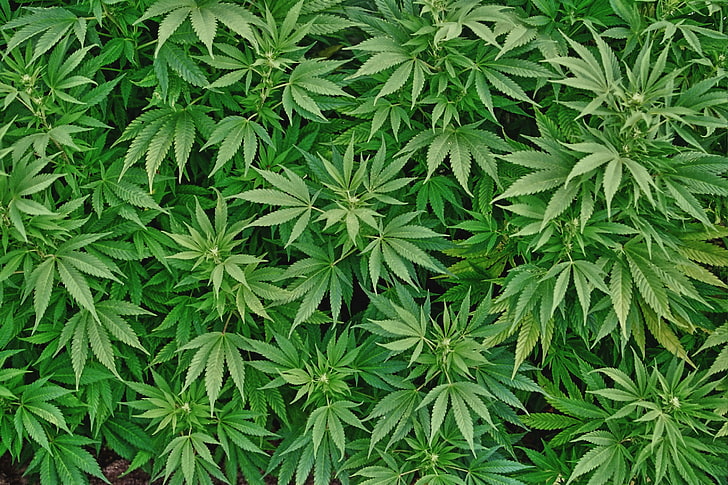Cannabis as a Tool for Recovery: Medical Marijuana in Rehabilitation
Cannabis as a Tool for Recovery: Medical Marijuana in Rehabilitation
Blog Article

The concept of using cannabis in the field of rehabilitation has gained significant attention in recent years. As more states and countries embrace the legalization of medical marijuana, there is a growing interest in its potential therapeutic benefits, particularly in aiding recovery processes. The changing perceptions around cannabis have shifted it from a substance of controversy to a topic of serious medical discussion and research.
Medical marijuana is increasingly recognized for its role in addressing various conditions associated with addiction and recovery. Many individuals struggling with substance use disorders face challenges such as anxiety, depression, and chronic pain, which can hinder their rehabilitation efforts. Researchers and healthcare professionals are exploring how medical marijuana might serve as a valuable tool to alleviate these symptoms, providing a holistic approach to recovery that promotes healing and improves quality of life.
Benefits of Medical Marijuana in Recovery
Medical marijuana has gained attention as a potential aid in the recovery process for individuals dealing with substance use disorders and other health issues. One of the primary benefits is its ability to alleviate withdrawal symptoms. Many individuals entering rehabilitation face challenging symptoms when they stop using substances. Medical marijuana can ease anxiety, nausea, and pain, providing patients with a smoother transition during detoxification.
Furthermore, research indicates that medical marijuana may reduce cravings for addictive substances. The cannabinoids in marijuana engage with the brain's endocannabinoid system, which plays a role in regulating pleasure and reward pathways. By activating these pathways, patients may experience fewer urges to seek out drugs or alcohol, allowing them to focus more on their recovery and rehabilitation efforts.
In addition to helping manage physical withdrawal and cravings, medical marijuana is known for its ability to improve mental health outcomes. Many individuals in recovery struggle with anxiety, depression, or post-traumatic stress disorder. Medical marijuana can offer a natural alternative to traditional medications, often with fewer side effects, facilitating emotional stability and supporting a holistic approach to recovery.
Challenges and Considerations
The use of medical marijuana in rehabilitation presents several challenges that need careful consideration. One primary concern is the varying legal status of cannabis across different states and countries. In some areas, medical marijuana is fully legalized, while in others, it remains restricted or prohibited. This disparity can create confusion for patients and healthcare providers, complicating treatment plans and access to necessary medications. It is crucial for individuals seeking rehabilitation to understand the legal implications of using cannabis in their specific location.
Another significant factor to consider is the potential for dependency and the risk of misuse. Although medical marijuana is often seen as a safer alternative to prescription opioids, it is not without its own risks. Patients may develop a psychological dependence on cannabis, which can complicate their recovery journey. Healthcare professionals must carefully monitor patients' use of medical marijuana and implement strategies to mitigate any potential for abuse, ensuring that it is used as a supportive tool rather than a crutch.
Medical Cannabis Evaluation Appointment
Additionally, understanding the optimal dosing and strain selection is essential for effective treatment. The varying composition of cannabinoids and terpenes in different marijuana strains can yield diverse therapeutic effects. Patients might experience different outcomes based on their individual needs, overall health, and the specific substances used. Ongoing research is necessary to identify the most beneficial strains and dosages for rehabilitation purposes, as well as to establish standardized guidelines that will enhance the efficacy and safety of medical marijuana in recovery settings.
Future Perspectives on Medical Marijuana in Rehabilitation
As more research emerges on the therapeutic benefits of medical marijuana, its role in rehabilitation is likely to expand. Studies have begun to highlight its potential in alleviating withdrawal symptoms, reducing cravings, and enhancing overall psychological well-being for individuals recovering from substance use disorders. Continued exploration into specific cannabinoids and their effects could lead to tailored treatment options that improve recovery outcomes for diverse populations.
Legislation surrounding medical marijuana is also evolving, which could facilitate broader access for individuals seeking rehabilitation support. As more states and countries recognize the potential benefits of cannabis in therapeutic settings, rehabilitation centers may integrate medical marijuana into their treatment protocols. This integration will require careful consideration of dosage, administration methods, and individualized care plans to ensure safety and effectiveness.
Furthermore, ongoing dialogue among healthcare professionals, policymakers, and researchers will be crucial in shaping the future landscape of medical marijuana in rehabilitation. This collaboration will help develop evidence-based practices and establish guidelines that address the complexities associated with cannabis use. Ultimately, as stigma decreases and education increases, medical marijuana could become a standard component in the toolbox of recovery strategies, offering hope and relief to those on the path to sobriety.
Report this page